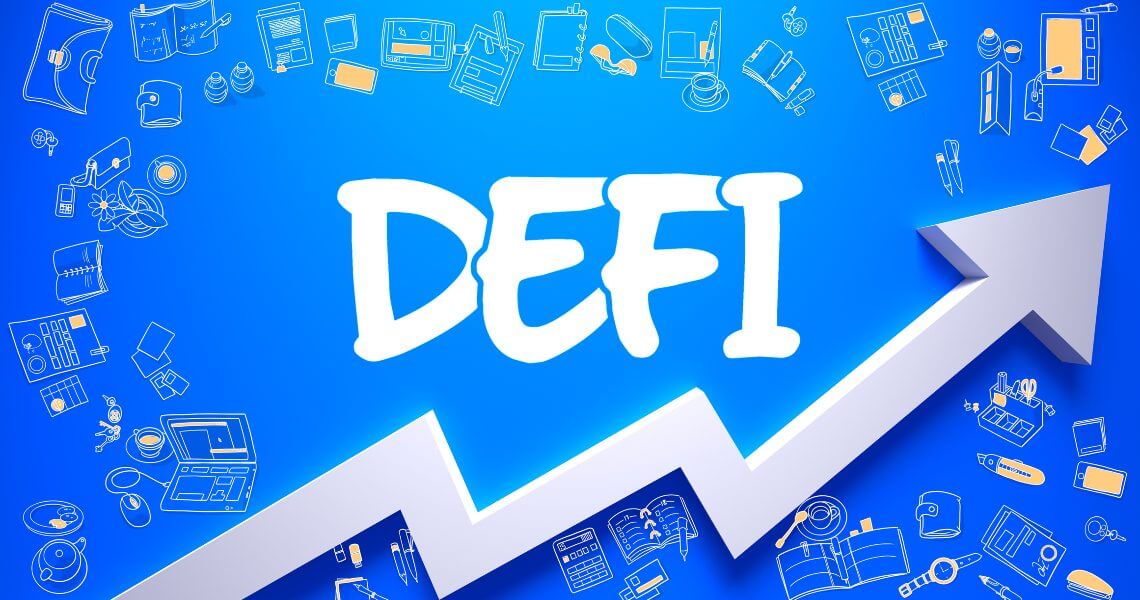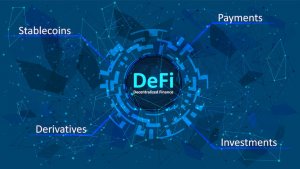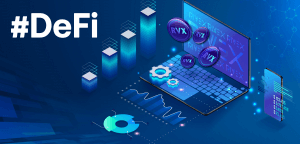Decentralized Finance (DeFi) is a system of financial applications that are powered by smart contracts. Defi has exploded in popularity because of its unprecedented features on cryptographic security, fraud-free transactions, and autonomy. Whether it’s investing, loans, insurance, banking, lending, and staking, pretty much every financial offering exists in DeFi.
The space’s dramatic growth has led many investors rushing in to get a slice of the DeFi pie. But just like with crypto investing, you can gain some handsome profits, but you can also incur devastating losses, especially if you’re not careful.
This article will guide you in what you need to do before dipping your feet in the DeFi investment waters. But before that, let’s look at what investing in DeFi entails.
DeFi Investing: The Basics
There isn’t much difference in the investment opportunities offered in the traditional financial setup and Defi. Decentralized lending, for instance, follows the same principle as lending in centralized finance systems, except this time, smart contracts are involved, and the returns are invariably better. Smart contracts are used to hold collateral from borrowers and also automatically deliver accrued interest to lenders. There’s also ‘staking.’ Staking in DeFi is when you lock up your crypto and get the right to participate in a network and, in some cases, earn rewards for depositing your crypto.
We also have ‘yield farming’ in DeFi. Introduced by Synthetix and popularized by Compound, yield farming involves locking up your crypto assets in a project’s protocol and earning rewards.
Defi investors use their insight to spot lucrative opportunities, just like traditional finance investors capitalize their knowledge on assets such as real estate.
With that, let’s get straight to:
What you need to do before investing in DeFi.
#1. Carry out extensive research
Before you invest your hard-earned money in a Defi project, it helps to do your research. To verify whether a project is legit, head to Google, and type the project’s name followed by the word “scam.” If this project is a scam, someone else might have already flagged it.
You might have typed the name of the project alongside the term “scam,” and nothing has popped up. This does not mean that the project is completely legitimate. You can use Defi tokens and protocols, which anyone can view since the project is open-source. If you can, evaluate the project’s codes to see if the project is genuine. This method particularly helps if you have programming skills or know your way around smart contracts.
#2 Observe the number of users and what they are saying
The more the users on a blockchain project, the more the value. With blockchain projects (mostly those on Ethereum where several Defi projects are built), there is real-time reporting. This can be done through Etherscan.io, which is for raw data, or Dune Analytics, which focuses on user-friendly reports. With these tools, you can look at the total users in a given Defi project coupled with the increasing number of users. The goal is to see real people using these protocols. Keep in mind that some of the data you see can also be corrupted as an elaborate ploy to lure in unsuspecting users. These accounts should belong to quality users, and their growth should be quadratic. If you observe such users utilizing the protocol, then it’s genuine.
Also, be keen on what trusted security professionals are saying and writing about these projects. Defi projects typically subject their smart contracts to manual security audits with an air-tight reputation. Some of them include Certik, Quantstamp, and OpenZeppelin.
You can also check what people on Twitter, Reddit, and DeFi-related sites and forums say about the project. You can also check whether the project is recognized by Defi Prime, Defi Pulse, and Defi Market Cap.
#3. Verification by Etherscan
Once a project has verified their smart contracts on Etherscan, a unique code will be availed. When viewing the contract, the code you see is the same code you ought to get when using it. Of course, this does not mean that your project is invulnerable to hacks or it’s not a scam. Still, having a code that can be publicly assessed without the fear of the code being changed is vital.
ETHProtect is a service provided by Etherscan that enables people to report suspicious activities on the Ethereum blockchain. A “Red Shield,” issued by Etherscan’s security analysts and the Taint Inference Analysis Engine, is something to watch out for when looking at Defi projects. These usually mean that people have launched a complaint against a certain project. When you see a Red Shield attached to a project, know that it’s been identified as a scam.
#4. Watch out for fake projects
Many fraudsters are ahead in the game – they create fake projects with legit-sounding names. But when you look more closely, you’ll find that the project’s links are either dead or lead to nowhere. Or it may have a website, but it looks all spammy, like requiring people to sign up for freebies – and other suspicious activities.
You can also know if a project is legit by checking what exchanges its tokens are listed on. It’s almost impossible to find a scam project listed on reputable exchanges like Coinbase, Binance, Huobi, etc. Instead, fake projects are listed on decentralized exchanges or little-known centralized exchanges.
Closing Thoughts
Investing in DeFi can be lucrative, but watch out for the loopholes. The crypto space is full of scammers looking to make a quick buck at the expense of unsuspecting users. Luckily, there are ways to identify a fake DeFi project way before you can be duped to invest in one. Also, you can always analyze a project’s code for the tech-savvy investors and determine if it’s legit. Also, don’t forget the first rule of crypto investing: don’t put in more money than you can afford to lose!





